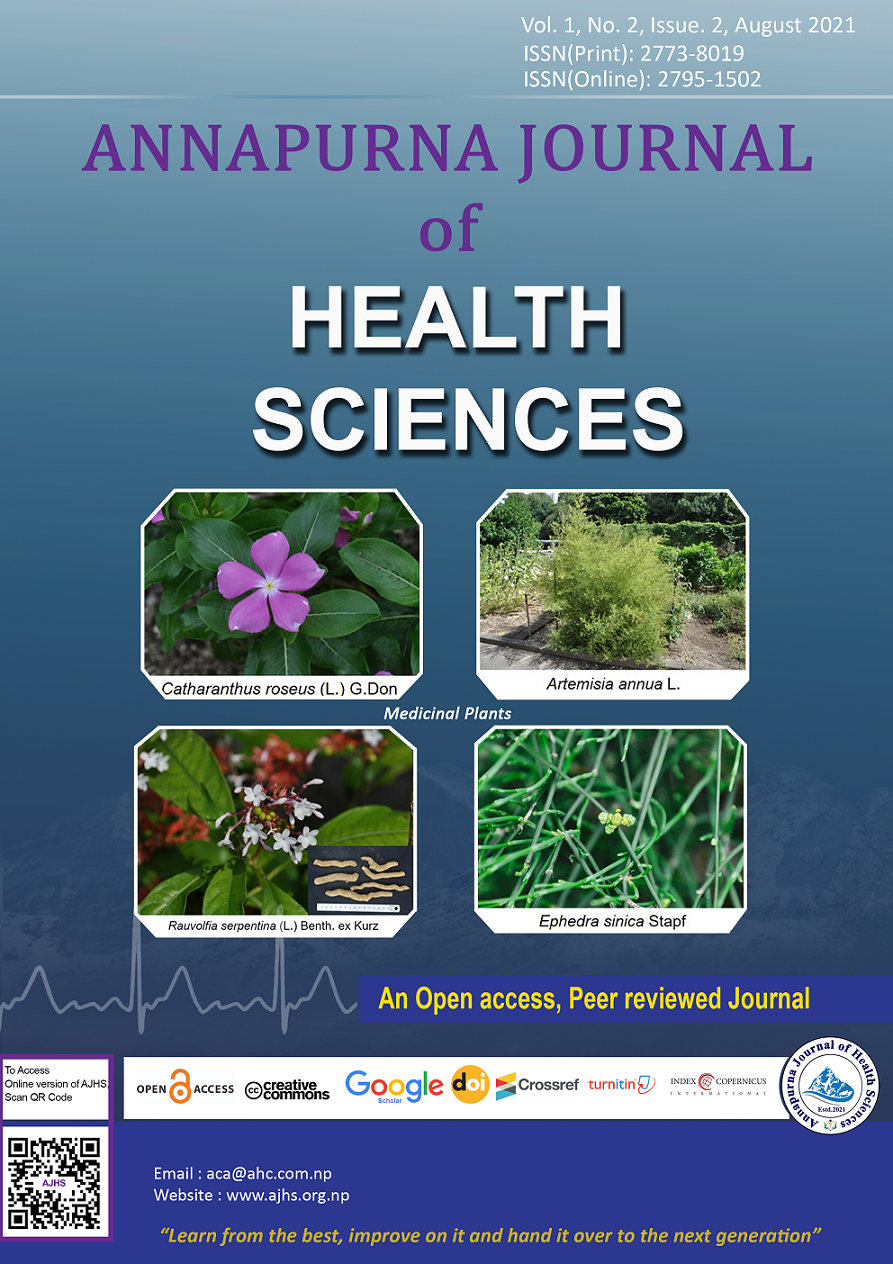Challenges Faced for Botulinum Toxin Injection in the Treatment of Hemifacial Spasm and Blepharospasm: Our Experience in Tribhuvan University Teaching Hospital during COVID-19 Pandemic
Keywords:
Blepharospasm, Botulinum Toxin, COVID-19 Pandemic, Hemifacial SpasmAbstract
Introduction: Hemi facial spasm (HFS) and Blepharospasm (BS) is a chronic
distressing condition. Botulinum toxin (BoNT) injection is one of its treatment
modality. Acquiring the injection and treating the patients overcoming the
lockdown hurdles of COVID pandemic has been a major challenge.
Methods: Patients who were treated at Tribhuvan University Teaching Hospital
(TUTH) Outpatient Department (OPD) during the COVID pandemic in 2020 and
2021 were included in this study.
Results: Out of 30 patients, 77% were female. 47% were diagnosed with BS
whereas the rest with HFS. About 50% of them have had symptoms for an average
of 2-5 years before receiving botulinum toxin injection. The mean Jankovic score
for patients before BoNT was 2.31(SD: 0.66 range 1-4). 26 patients experienced a
decrease in spasm within one week of BoNT injection and had symptomatic relief.
The mean Jankovic score at week 1 was 0.63(SD: 1.09 range 1-3) and the difference
was statistically significant (p<0.001). After 2 weeks of BoNT therapy, all patients
experienced a decrease in spasm with symptomatic improvement. The mean
Jankovic score at week 2 was 0.26(SD: 0.44 range 0-1) and the difference was
statistically significant (p<0.001). In terms of side effects, 4 patients experienced
paresis while 26 patients experienced no side effects. No other systemic side
effects were reported.
Conclusion: BoNT injection has a good outcome for HFS and BS, despite its cost
and the need for frequent injection. Importing the BoNT from India during the
lockdown period of COVID pandemic and patients travelling within the country
were challenges that were faced by the patients and doctors to achieve the result
Downloads
Downloads
Published
How to Cite
Issue
Section
License

This work is licensed under a Creative Commons Attribution 4.0 International License.
This license allows reusers to distribute, remix, adapt, and build upon the material in any medium or format, so long as attribution is given to the creator. The license allows for commercial use.




